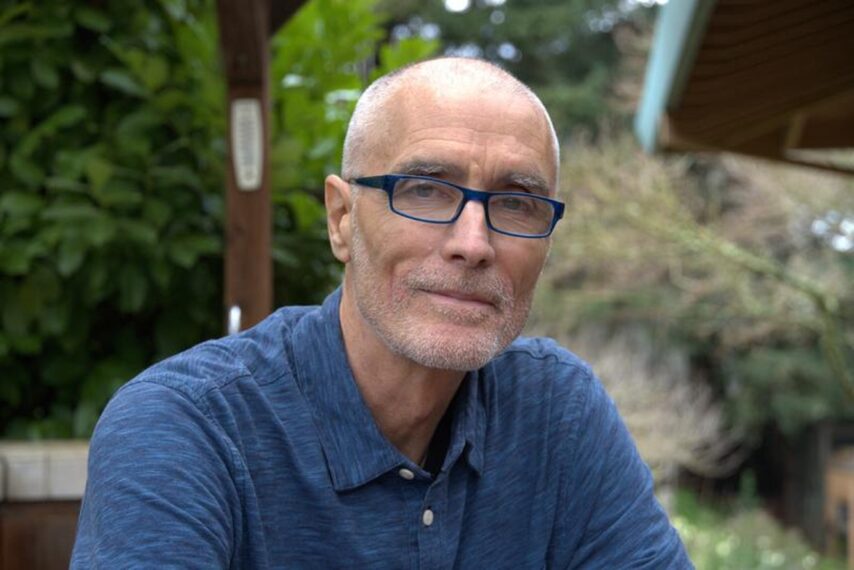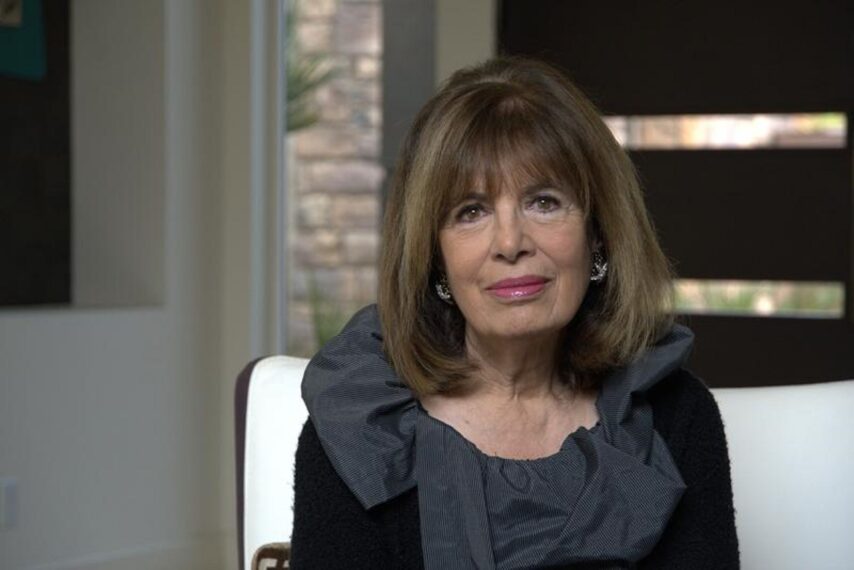Jim Jones led his followers to the remote jungle commune at Jonestown, Guyana, isolated from any other society. However, this false utopia turned into a living hell. California’s Rep. Leo Ryan, reporters and others concerned for the well-being of those in the Peoples Temple decided to investigate rumors of abuse. What happened next left more than 900 people dead including cult leader Jones himself.
The tragic events of November 18, 1978, are explored in the third installment of the “One Day In America” franchise with Cult Massacre: One Day in Jonestown. The three-part docuseries delves into the horrific story through the words of survivors, eyewitnesses, archival footage, and rare recordings of Jim Jones. Here director Marian Mohamed reveals some of the most eye-opening elements that make this a hard but must-watch.
This is a story that has been covered heavily over the years. What do you think stands out about this doc’s approach?
Marian Mohamed: I think we’re living in the documentary boom at the moment. People are watching them now more than ever. What we’re doing with this series that I think is very different is we’re telling the story entirely through the perspective of the survivors. There are no experts or pundits. Just the people in the story. We’re telling it through testimony and archive footage. My team and I spent a long time going through footage from the 1970s and trying to identify everyone. You see each person you meet today in the footage. You see them then and now, so that brings a fresh perspective. I think we look at these tragedies slightly differently today. Maybe 10 or 20 years ago it’s looked at as a cult suicide-massacre. I think you see it’s a lot more complicated and society looks at victims differently in these kinds of situations.
You make it a point in the doc to say that this isn’t considered a mass suicide but mass murder. How was it for them to open up in this setting and revisit such a traumatic time? Did it help you had this body of work you were able to show them to give them peace of mind and that they would be in a safe space?
You’re right. That absolutely did help to have the body of work we did make. We’ve tackled some very sensitive subjects. There have been other documentaries done, but even 45 years on, it’s just as difficult and challenging. I think that was a shock to our system as well. We try to explain our approach. We mention to them how we are searching for archival footage of them. Sometimes we show them footage they haven’t seen before. That helped. We were doing our own research and really digging and it felt like conversation throughout. We try to be as respectful and honest and collaborative as we could be.

Former Legal Aide to Congressman Ryan Jackie Speier poses for a portrait during an interview for “Cult Massacre: One Day in Jonestown.” She traveled to Jonestown with Congressman Ryan in 1978. (National Geographic/Xiao Hou)
The footage and even audio recordings are pretty shocking. The viewers are almost a fly on the wall as they watch this tragic piece of history unfold.
The NBC news crew had this raw documentary material. NBC provided us with more footage than they’ve released before. We’re grateful for that. We know there was a massive military cleanup, which you see in episode 3. We went to the military for that footage they filmed. Watching that and trying to live in that world as much as possible. And not use that archival footage as wallpaper but use it to push the narrative forward. We did a lot of digging. We had great archival producers on this team. They all spent a lot of time watching. The footage is quite dark, especially in episode 3. We did have a really good team that was supportive and really cared about the story and survivors. We were compelled to keep going with it. This was such a unique and unusual story. With all the difficulties of looking at the footage, we knew we had to.
Despite all Jackie Speier endured during the Jonestown massacre including being shot five times, it’s inspiring to see what she made of her life and career in the years that followed.
I love Jackie. It is amazing watching her go from a young aide to congressman [Leo Ryan] and then by episode 3, she is talking about becoming a congresswoman and taking a seat. I’m glad you picked up on that. All of these people you could see walking down the street and never know what they’ve been through. They’ve been through something so traumatic and dark, but they’re all really resilient people who have rebuilt their lives. They’ve worked through the trauma and madness to try to build some normality in their lives. I think it was important to reflect that. They are more than what happened. It was important to show they were three-dimensional characters like anyone else, except carrying this massive story inside.

Stephan Jones poses for a portrait during an interview for “Cult Massacre: One Day in Jonestown.” (National Geographic/Xiao Hou)
Jim Jones’ son Stephen sits down with you. How important was getting him on board for this?
It was super important. It’s not every day you get to meet the son of a cult leader like Jim Jones. With Jim Jones not around anymore, we really wanted to understand Jim Jones’ psyche and who he was. What better way to do that than through his son? You see him in the footage and getting blamed for what happened. He didn’t kill all those people. This goes back to how we look at victims from then to now. Being able to sit down with him and for him to talk about growing up with this man. He was as close as we could get to his father. For him, it’s not easy. He didn’t just lose his community but his father too. We were grateful that he agreed to do this. Some of the survivors said to us, “We’re getting older now. We may not want to sit down again.” We were told this may be their final interview about this. That felt special to us too.
I’m sure motivation came for a lot of them to speak in hopes something like this doesn’t happen again.
Exactly. I think we live in a time where there is an obsession with strong man leaders and charismatic leaders. I think as humans and as a society, we’ll always be attracted to that. I think Jim Jones is an example of that kind of character taken to the extreme.
Journalists don’t always get the respect and appreciation for what they do. There were some who risked their life and gave their life for the story. How was it having Charles Krause recount what he went through going into the first trip and then going back after everything happened?
Charles is brilliant. He is so busy and hard to get a hold of, so it was great to sit him down. We came across him after looking through the archives. He had been shot and then went back and broke the story for The Washington Post. We were connecting our own dots in the research. He has not sat down and properly told his entire story of being shot at and coming out as this young reporter who breaks the story. We got on very well. We were always bothering him saying, “Hey, is this correct?” He really helped us. Journalists don’t always get that well done. He is a hero as the other reporters who went there and got that story out. Stories like this can often be reduced to, “This is just about a cult or massacre,” But there is more to it. I think there are heroes in the story.
The doc gets you thinking about what was going on in the United States at the time this happened. People wanted someone to believe in, which you could say is no different than today.
It does draw parallels with what people were feeling then and some now. Protests were happening back in those times. There was a racial divide, poverty, and all these issues that were going on. So if someone comes along and offers you an alternative, of course, you’re going to go for it. The Peoples Temple was so diverse. It attracted people from all walks of life. Working class poor people, African Americans, and academics. It could have been anyone in the group. These people weren’t crazy. Something attracted them to this. Our obsession with populist charismatic leaders will always exist.
Cult Massacre: One Day in Jonestown premiere, June 17, Hulu
